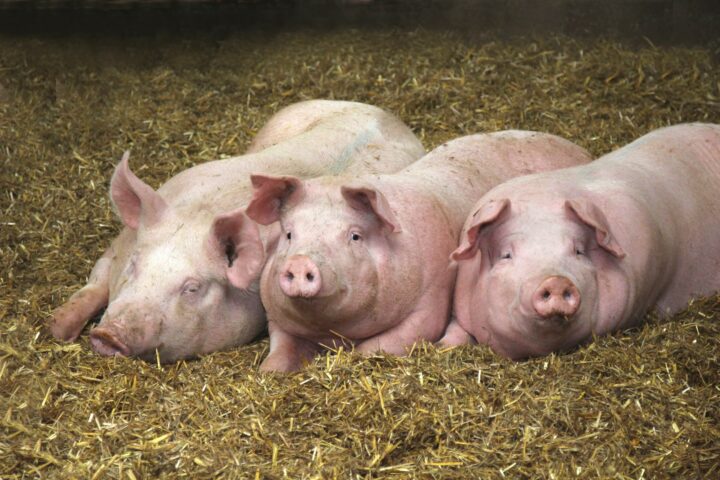
Genome Editing: Standards are being relaxed all over the world
Great Britain has already decided on its first steps, Switzerland has too: The handling of simple genome-edited plants is being made easier. The strict genetic engineering laws should no longer be the sole measure. The EU is also working on reform. What it should look like is unclear, but already fiercely disputed - and it will take years. Many states across all continents have been further ahead for a while.
Tuesday, March 29, 2022
Even though practically not much changed at first, it was a signal of great symbolic significance: On 18 March 2022, the Swiss Parliament decided that plants grown using new methods such as the CRISPR/CAS gene scissors, in which no new transgenic genetic material has been inserted, will no longer be treated as conventional genetically modified plants (GMOs).
It was a surprising turn. For many years, a strict ban on the use of genetically modified plants has been in force in Switzerland. Voted on in a referendum in 2005, it has been extended every four years since then, including a recent extension until 2025. But, unlike before, the agreed moratorium will soon no longer include simple genome-edited plants, if they could be bred in the same way using conventional methods. By 2024, the Federal Council – the Swiss government – is to present a proposal for a "risk-based authorization".
It is still unclear what this would look like, whether it would exclude simple genome-edited plants from the declaration obligation, as the Swiss farmers' Association has demanded, for example. The "radical change of opinion" (NZZ) in both chambers of the Swiss Parliament is also an expression of a changed opinion climate. A new generation of consumers is growing up, which has been shown to be more open to "innovative solutions in agriculture," according to a recent study by ETH Zurich, cited by the NZZ.
Britain, too, has already taken a new course and is taking advantage of the freedoms offered by leaving the EU. As a first step, the Parliament decided that in future field trials with simple genome-edited plants no longer have to be applied for and approved in a complex procedure. Now a simple registration is enough. New rules for approval and cultivation will follow. The British government is seeking to promote the research and development of new plants to "significantly reduce the use of pesticides and herbicides" and "make plants more resistant to difficult weather conditions and climate change."
But it is not only European neighbors such as Switzerland and Britain that have abandoned old, scientifically outdated opinions. Numerous countries – including the major agricultural exporters in South and North America – have now adapted the rules for the approval and cultivation of genome-edited plants. These are no longer subject to the laws that have been in force for many years for genetically modified plants, and to which they were previously subject despite being different. Fundamentally, almost all countries are guided by the broad scientific consensus that has emerged in recent years.
- If there is no foreign DNA in a genome-edited plant and if it could have been caused by chance mutation under natural conditions, it is evaluated as a classically bred plant. There are no fundamental differences in safety.
- However, if new genes or larger DNA sections have been inserted into the genome using genome editing techniques, such plants are generally considered to be GMOs and are covered by genetic engineering laws. They must meet the same safety requirements.
Some countries – such as Argentina, Australia, or Israel – are already following these principles. Others – such as the United States, Canada, Brazil, or Japan – require a case-by-case procedure: Research institutes or companies that want to field test a genome-edited plant or market it as seed must demonstrate to the approval authorities whether the conditions for deregulation are met.
At the beginning of the year, China also announced that it would simplify the approval of genome-edited plants.
After Nigeria, Kenya is the second African country to have its own guidelines in place for the evaluation of genome-edited plants. Here, too, it is to be decided on a case-by-case basis whether a newly developed genome-edited plant is released or is subject to special conditions. In Kenya, a number of research projects are underway on regionally important crops such as sorghum (millet), bananas and maize. The goals are resistance to local diseases and pests as well as improved drought tolerance.
And the EU? Almost four years have passed since the memorable ruling of the European Court of Justice (ECJ), which subjects all genome-edited plants to the 25-year-old genetic engineering law. After a long delay, the EU Commission has finally set in motion a multi-stage consultation process with the aim of "adapting genetic engineering laws to scientific and technical progress" and thus "enabling innovations in agriculture". The Commission intends to present its proposal in mid-2023. Then there will be complicated and certainly controversial discussions in Parliament and the Council of Ministers. It will take years for them to come to an end.
Many countries outside the EU will then have gained a lot of experience as to whether and how a simpler approach to new breeding techniques can promote innovation and contribute to sustainable agriculture.
This article first appeared on March 24, 2022 on transgen.de under the title "Genome Editing: Lockerungen überal".
Related articles

What’s Really in Your Shopping Basket
Genetic engineering in our shopping basket? Yes – and much more often than we think. Whether it’s pasta, bread or vegetables: many of the everyday products we consume come from mutation breeding, which involves altering the genome and is considered safe. It’s high time to debunk the common myths.

Genomic breeding methods are not given a chance to prove themselves
Modern genomic breeding methods are legally classified as genetic engineering – and are therefore still effectively blocked. Yet we have been eating genetically modified plants for decades, just under the label of “classical mutagenesis.” The new, more precise techniques are regulated more strictly than the old ones, even though they are considered safer from a scientific perspective. A contradiction that urgently needs to be corrected. The EU is setting a good example.

No Pig Business: Why Testicle-Free Boars Are a Clear Win for Animal Welfare
New breeding methods are opening up new possibilities in both plant and animal breeding. They allow targeted genetic changes that can make animals more resilient, adaptable, and healthier.

Stagnation instead of progress: Switzerland risks falling behind in new breeding techniques
An overview article in Schweizer Bauer shows how much the new breeding methods are preoccupying farming circles. Once the consultation process on the federal law has been completed, a bill is expected – then it will become clear whether there is actually the political will to approve it.

